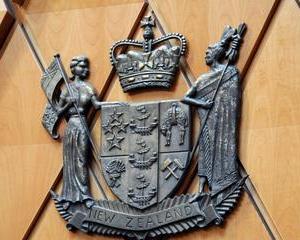

He said all large organisms lost cells as they moved through their environment.
New genomic technology was sensitive enough to pick this up, and databases that span the majority of known living things could be used for comparisons.
He would be looking for something unique - ''an unusual lineage separate from all known species ... we're looking for the odd one out.
''Is there anything in Loch Ness that looks different from everything else?''
Prof Gemmell said if unknown DNA was found, it would open up a conversation.
''But if we find nothing particularly special about Loch Ness, I don't think that is going to stop people from believing in the monster.
''I, myself, am a sceptic. But I'm not averse to the idea of being proved wrong.''
Prof Gemmell said it was still just a proposal at this stage, and he had not yet applied for funding for the project.
''It started out as an idea that I voiced on Twitter with some other colleagues, and it's been picked up and it seems to have grown some legitimate legs.
He hoped funding could be found to conduct the project within the next 12 months.
News of the initiative has spread quickly to Scotland, where the Daily Mail newspaper has quoted local researchers expressing interest in the study.
Loch Ness Monster researcher Roland Watson (54) said he was not aware if anyone had DNA-tested the loch before.
Loch Ness Project leader Adrian Shine had carried out field work on the loch for a host of universities and researchers since 1973.
He said he and his team could potentially help gather samples for the study.
''I would be very interested in the results,'' Mr Shine said.
Steve Feltham has spent 26 years trying to solve the mystery from his base on the shores of the loch.
''If anyone thinks they can identify it, bring them on,'' he said.
''Anything that gives us more knowledge is to be welcomed.''
He also said he would not give up his hunt, even if the study suggested there was nothing there.
''I can guarantee you, someone would see something the next day,'' he said.
Ella Macrae, chairwoman of the local Dores Community Council, said she, too, would be interested in the study, but believed the results would not change the popularity of the myth.
''The mystery will still be spoken about in decades to come when this study is done.
''I don't think they will ever get to the bottom of it,'' she said.
Advertisement













